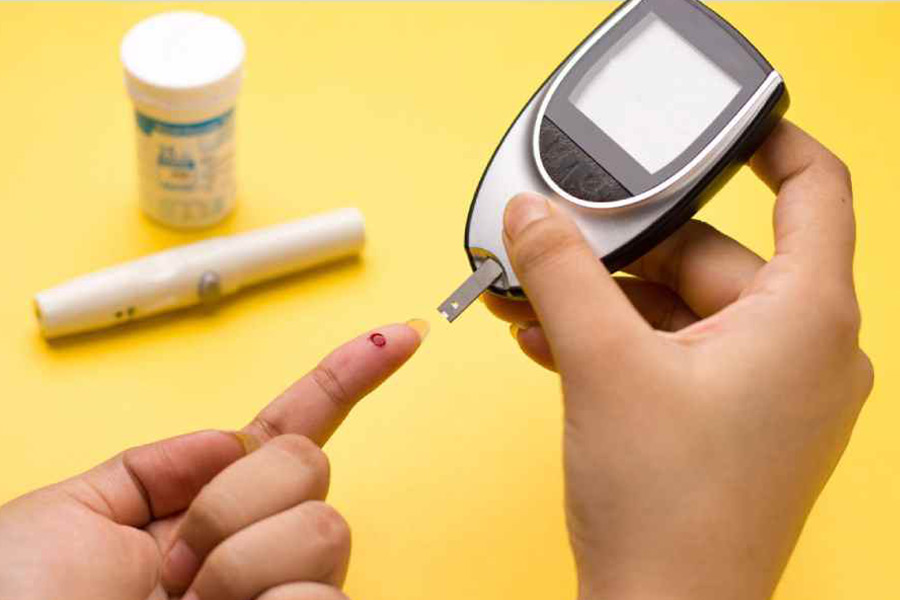Coming from a state that swears by its sweets, it is ironic but essential to cry foul when it comes to diabetes. For Bengal, words like Putiram, Ganguram, and Balaram Mullick and Radharaman Mullick are not merely iconic names of sweet shops. They are emotions that shape our psyche (along with our appetites, of course!) But it also means that we stand vulnerable to a category of food that remains palatable anyday, anytime, anywhere.
This isn’t to say that the rest of India simply watches the sweet spectacle and remains bitter. Truth be told, India’s ability to create sweets and similar high-calorie foods can put most other food-loving countries to shame. We are impossibly creative when it comes to cuisines that appeal to the sweet tooth. We indulge happily, unabashedly and proudly.
But is that enough to make diabetes a potential epidemic in India? Possibly not. We need a bit of science to stick our teeth into.
India has about 100 million people who suffer from diabetes and about 136 million who are in the pre-diabetes stage

Our country also suffers from the metabolic overload of sedentary lifestyle, excessive intake of high-calorie diets (exacerbated by sweets), obesity, stress and smoking TT Archives
Before that, let’s deal with some hardcore facts about diabetes in our country. According to a recent analysis, India has about 100 million people who suffer from diabetes and about 136 million who are in the pre-diabetes stage. The numbers spin out of control when we measure by accounting for the complications related to diabetes, which, in most cases, affect the heart, kidneys, nerves and the eyes.
Sadly, despite all our rapid advances in science and technology, we still remain a country plagued by poverty and disease. Indians’ metabolic capacity (defined as the ability of the body to metabolise substances to maintain normal glucose or lipid levels) is inadequate for a country that has high incidences of malnutrition, infectious diseases, low birth weights, and immunosuppression.
On the other hand, our country also suffers from the metabolic overload of sedentary lifestyle, excessive intake of high-calorie diets (exacerbated by sweets), obesity, stress and smoking. Couple the high metabolic incapacity with the high metabolic overburden and you will have a perfect recipe for full-blown diabetes.
All this in spite of India boasting countless pharmaceutical companies sprouting like mushrooms from coast to coast, with many among them churning out one hypoglycemic agent after another. This leads to a near-farcical situation where one devours sweets and pills at the same time. In a nation where the doctor-patient ratio is incredibly skewed, physicians have little time to talk about awareness and prevention, the two main words that can save us from this potential epidemic.
A quality life, free of diabetes, rests solely on us

Eating sweets and pills in tandem is not a long-term solution for healthy living TT Archives
While genetic factors cannot be overturned, functional factors can certainly be modified. And the effort to curtail the metabolic overburden has to come from both the administration and the healthcare providers. Strong awareness to cut down processed foods, high-calorie diets and drinks, obesity (which causes insulin resistance and, in the process, worsens diabetes), smoking and stress must be implemented. And when you add to that a diet rich in fruits and vegetables, regular exercise, and a calm, stress-free life, the swelling tide of diabetes can be stemmed.
At the end of the day, diabetes, in spite of its potentially fatal complications, remains reversible. It’s a disease that can always be prevented and managed by taking the right lifestyle and dietary choices. A quality life, free of diabetes, rests solely on us. As does the choice to not devour mishti after every meal!
Dr Shuvendu Sen, born and brought up in Kolkata, is a US-based physician currently serving as the vice-chair, Research, at the Jersey Shore University Medical Center, New Jersey. An award-winning physician and author, his works include The Fight Against Alzheimer’s (Rupa Publications, 2024), Why Buddha Never Had Alzheimer’s (HCI/ Simon & Schuster, 2017) and A Doctor's Diary (Times Group Books, 2014), among others. Dr Sen can be reached at shuvendusen57@gmail.com


